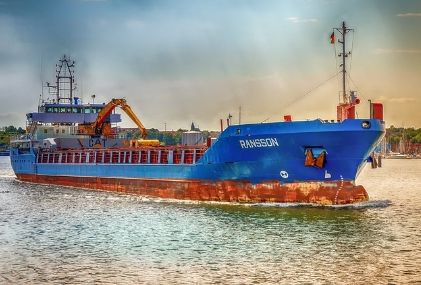What is a Foreign Trade Company and How Does It Operate in Global Markets?
A foreign trade company specializes in the business of exporting and importing goods and services across international borders. These companies act as intermediaries between domestic producers looking to sell their products abroad and foreign buyers interested in purchasing them. Similarly, they facilitate imports by helping domestic businesses acquire foreign products or raw materials from overseas markets. This article will explore the role of foreign trade companies, their functions, and the impact they have on global commerce.

Understanding Foreign Trade Companies
Foreign trade companies operate within the complex ecosystem of international trade, leveraging expertise in market dynamics, regulatory requirements, and logistics to conduct trade efficiently and profitably. They may be independent entities that specialize in trade services or integrated within large corporations to manage their international trade operations.
Key Functions of Foreign Trade Companies
1. Market Research and Development: They identify and evaluate market opportunities and trends in different countries to inform export-import decisions.
2. Negotiation and Contracting: Foreign trade companies negotiate terms and conditions with buyers and sellers, ensuring that contracts fulfill legal and commercial requirements.
3. Logistics Management: They coordinate the logistics of moving goods, including transportation, storage, and distribution, often handling or overseeing customs clearance processes.
4. Compliance and Documentation: Ensuring compliance with international laws and regulations is crucial. This includes managing the necessary documentation for customs and regulatory bodies in different countries.
5. Financial Services: They often facilitate financial transactions associated with international trade, including securing payment methods such as letters of credit, insurance, and financing options.
Benefits of Foreign Trade Companies
• Expertise in International Regulations: These companies are well-versed in the regulatory complexities of different countries, helping businesses navigate these challenges effectively.
• Access to Wider Markets: By leveraging their networks and expertise, foreign trade companies can introduce businesses to new markets that may have been difficult to penetrate independently.
• Risk Management: They manage and mitigate risks associated with international trade, such as currency fluctuations, non-payment, and political instability.
• Cost Efficiency: Through economies of scale and expertise in logistics, foreign trade companies can often reduce the costs associated with international trade.
Challenges Faced by Foreign Trade Companies
• Market Volatility: Changes in global economic conditions, trade policies, and political climates can significantly impact their operations.
• Competition: The international trade landscape is highly competitive, with companies needing to continually adapt and innovate to maintain their market position.
• Complexity of Compliance: Navigating the diverse regulatory environments and maintaining compliance can be costly and complex.
Global Impact and Strategic Importance
Foreign trade companies play a crucial role in the globalization of businesses. By facilitating cross-border trade, they contribute to the economic growth of countries and help businesses around the world expand their reach. They are instrumental in driving competition, reducing prices, and enhancing product availability globally.
Conclusion
Foreign trade companies are vital players in the world of international commerce. They provide essential services that enable businesses to extend their operational reach beyond domestic markets and tap into global opportunities. For businesses looking to expand internationally, partnering with or utilizing the services of a foreign trade company can offer a strategic advantage, providing access to specialized knowledge, established trade networks, and enhanced operational capabilities in the complex landscape of global trade.
Related articles

 WeChat of CBiBank
WeChat of CBiBank